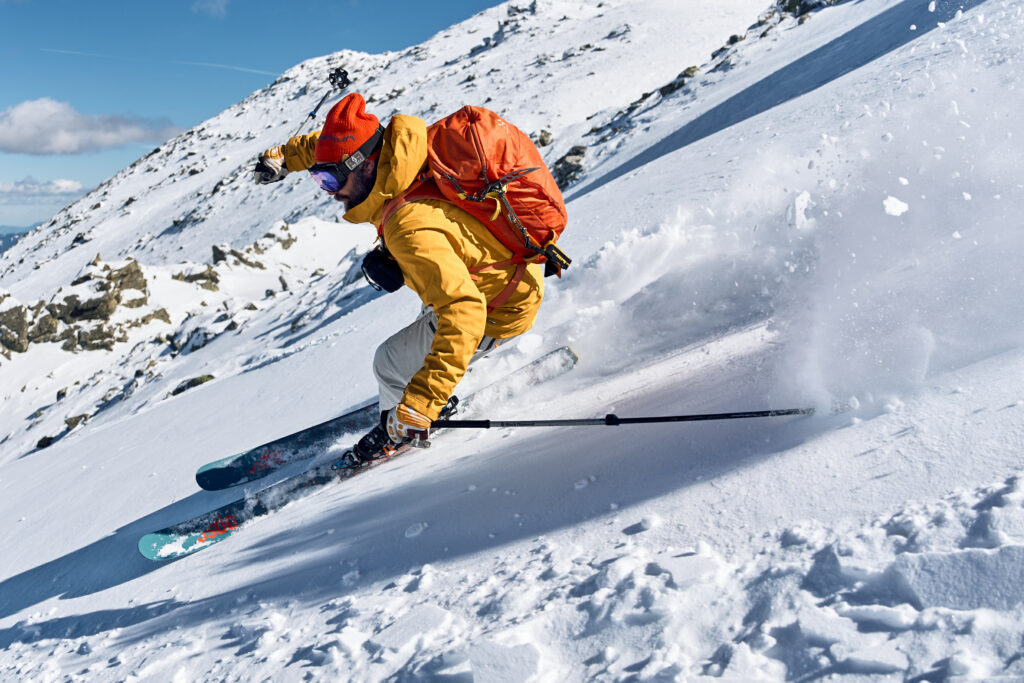We’ve all felt it: that little knot in our stomach, the whisper of unease before a big decision— the “Gut Feeling” a powerful intuition woven from past experiences and subtle cues, often invaluable in risky situations. Skiing, a thrilling dance with gravity, demands such decisions constantly.
While calculated analysis reigns supreme, neglecting this internal compass might lead to unforeseen challenges. The question crawls: should we rely on our instincts, even if they contradict logic, or adhere strictly to proven methods, potentially missing out on exhilarating runs?
This delicate balance between intuition and caution defines every skier’s journey, where each turn becomes a lesson in trusting your gut amidst exciting, yet potentially perilous, descents.
This “gut feeling,” a surge of intuition, can be a powerful force in our lives, influencing everything from who we date to what job we take. But when it comes to high-stakes situations, like hurtling down a mountain on two planks of wood, should we trust our gut instincts?
Buckle up, snow seekers, as we explore the science, psychology, and real-life stories of gut feelings on the slopes, where the ultimate goal is savoring the ride while making smart choices that keep us coming back for more powder days.
“Trusting your gut” isn’t just a saying; it’s subconscious integration of past experiences and subtle cues, forming a “gut feeling” that can warn us of danger before conscious analysis. Consider Italian ski legend Alberto Tomba, caught in a sudden whiteout. Though tempted to continue based on memorized landmarks, intuition made him stop just before another skier crashed at the same spot.
While not a replacement for informed decisions, trusting our intuition, honed by experience, can be a powerful tool for avoiding accidents, as evidenced by studies from mountain rescue teams and research on soccer players in Europe. Remember, combine intuition with critical thinking and safety measures for optimal results.
So, in front of the mountain, always stay humble.
As some emotions can masquerade as intuition, leading to inaccurate signals. Cognitive biases like overconfidence or underestimating risk can also skew our gut feelings. Imagine a climber, overconfident in their abilities, ignoring warning signs due to a false sense of security. This highlights the importance of balancing intuition with critical thinking and safety measures.

Studies from European mountain rescue teams and research on soccer players showcase the combined power of intuition and informed decision-making in accident avoidance.
Remember, your gut is a powerful guide, but it’s not infallible. For optimal results, listen to its whispers, but always think critically and prioritize safety.
Finding the Balance: Making Safe Skiing Decisions:
So, how do we navigate the tricky balance between trusting our gut and engaging our minds? When skiing (or facing any risky situation), consider both your gut instinct and objective factors like your skill level, weather conditions, and terrain difficulty. Don’t ignore that voice whispering caution, but analyze it alongside concrete information.
After all, Alberto Tomba wasn’t a novice skier; his experience played a crucial role in interpreting his intuition accurately. Remember, training, experience, and proper risk assessment are invaluable tools. Just like honing your skiing skills, you can sharpen your gut instincts through self-reflection.
Regularly analyze past decisions, both successful and not, to understand how your gut feelings manifested and how they aligned with reality. Practice mindfulness and listen to your body’s subtle cues.
Remember, your gut is a powerful ally, but a well-informed mind is an essential partner in navigating life’s slopes, both literal and metaphorical. So, listen to your gut, but don’t forget to engage your brain – the perfect run awaits when both are in sync.

